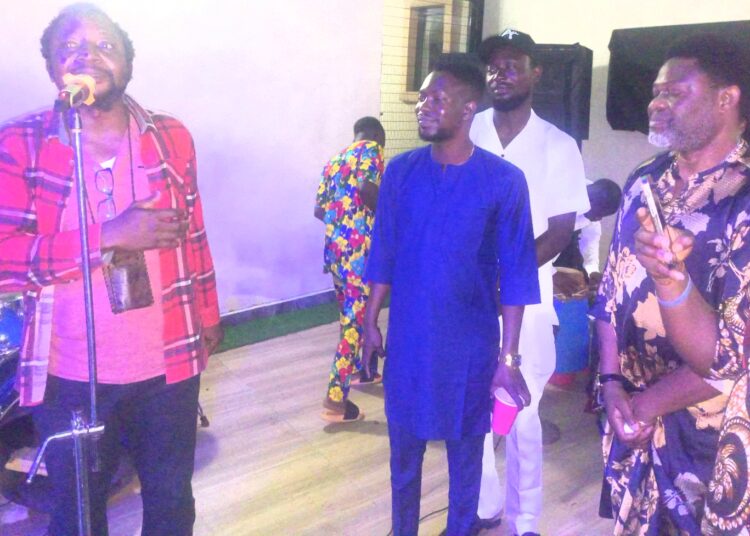
Aroba Groove, a group of cultural enthusiasts dedicated to preserving and promoting cultural heritage, hosted a cast party on Sunday for the participants of 0
Asiyanbi.
*Asiyanbi* is a stage adaptation of *Ti Oluwa Ni Ile*, produced by Akindeji Ibitayo and directed by Ropo Ewenla. The original *Ti Oluwa Ni Ile* was written by veteran actor and producer Alhaji Kareem Adepoju, also known as Baba Wande, in 1987 and was first produced by renowned filmmaker Tunde Kelani in 1993.
The drama featured an impressive cast, including Baba Wande, Aderupoko, Yomi Fash Lanso, Yemi Elesho, Lekan Agba Inaki, Jigan Baba Oja, Jude Chukwuka, Yaw, Dele Omo Woli, Baba Alariya, and Baba Kamo Ozain, among others.
In addition to the merriment, the cast party, held at Iris Gold Hotel in Anfani, Ibadan, provided an opportunity for the cast to reunite, interact, and exchange ideas.
Deji Ibitayo, the producer, explained the rationale behind the cast party: “We put them through very rigorous rehearsals, and the production process lasted nearly a year. Given the time, the schedule, and everything involved, it’s essential to appreciate the people who’ve put in so much effort. We have a total of 78 cast members, including major names like Aisha Lawal as Iyalode. The only person retained from the original movie is Aderupoko. We’ve also introduced many new and young talents, such as Yomi Fash-Lanso, Ozain, Baba Alariya, Baba Kamo, Wa Sere, and many more. Some of these individuals are skit makers, and we involved them to showcase that they are capable of performing live. One of my biggest surprises was Ozain, who, despite being very busy during rehearsals, was fantastic on stage.”
Corroborating Deji Ibitayo’s sentiments, veteran actor Yomi Fash Lanso emphasized the importance of the cast party: “It’s essential because it shows gratitude to the crew. It compensates them and expresses appreciation beyond just financial rewards. It lets them know that they’re valued and loved.”
Fash, who played the role of a king in the stage drama, further noted that this project stands out due to its timely theme. “It addresses issues we continue to face today, and we’ll keep addressing them until we see change. It touches on the concept of *ile oosa*, a sacred place that should be preserved, respected, and left untouched.”
Additionally, Director Ropo Ewenla expressed his gratitude for the cast’s cooperation during rehearsals and production, stating, “It was an enjoyable experience. We spent about two to three weeks working through the lines. This wasn’t your typical stage production; it’s up to the audience to decide whether they’ve seen something truly remarkable or not.”












